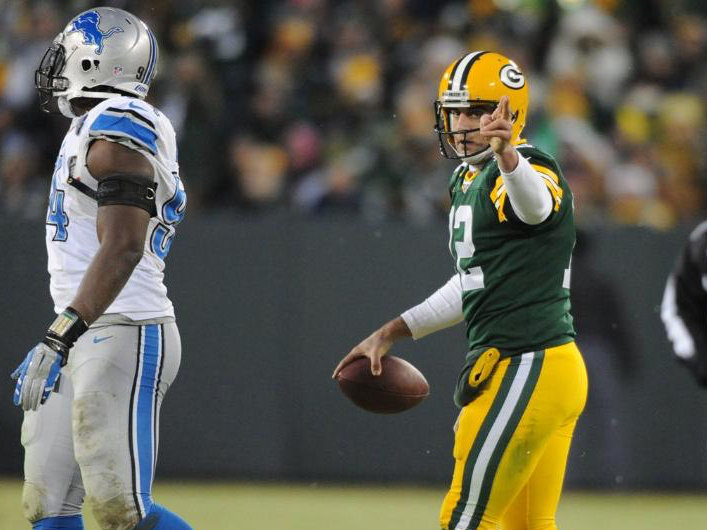The world of sports is filled with conflicts and bad news and bad behavior and bad play, but all of that is outweighed by a large margin by the hero potential.
In a world that is often desperately in need of heroes, it is the world of sports that delivers, time after time after time.
And it’s very possible that we witnessed the birth of a new hero last Sunday when Aaron Rodgers came out of a golf cart trip to the locker room to lead his team to a victory in the most crucial game of the year.
To understand the nature of sports heroes it’s only necessary to search your memory banks for those moments when athletes climbed from the ranks of stars into the ranks of something so much more than just a sports star.
In 1970, New York Knicks center Willis Reed, who had missed game six just two nights before, dragged his injured leg onto the court for a game seven in the NBA title game against the Los Angeles Lakers. His appearance was so inspiring it’s been called the greatest moment in the history of Madison Square Garden.
In 1988 Kirk Gibson, bum leg and all, dragged himself to the plate and hit a home run, even though he could barely run around the bases.
In 1997 Michael Jordan got out of bed with food poisoning and led the Chicago Bulls to a crucial playoff victory over the Utah Jazz. The image of Jordan collapsing into the arms of Scottie Pippen is one of the iconic pictures in the world of sports.
In 1999 a damaged waif named Kerri Strug struggled to make a gymnastic jump that gave the United States women a gold medal in the Olympic Games in Atlanta.
And in 2003 Brett Favre, whose father died the night before, played a Monday night game against the Oakland Raiders and threw for four touchdown passes as his teammates credited Favre’s bravery for the outstanding performance.
All of those heroes had great histories as athletes. They were all good and at the top of their game. But it was a special set of circumstances that turned them into heroes.
First of all the occasion was important. It wasn’t just another game or just another event. It was a time of great importance and spectacle. A playoff game. A Monday night football game.
The second thing is that there has to be some sense of adversity that the athlete overcomes. And in many instances it’s the health of the athlete. Mental or physical difficulties prove to be no barrier to the excitement of spectacular performance.
The final thing that belongs to the hero is the sense that he makes those around him better. He gets extraordinary performance out of his teammates.
And that seems to fit Rodgers last Sunday.
He was hurt, no doubt about that. The vision of him, first laid out on the field, then being helped off, then riding in the golf cart to the locker room was enough to give every Packers fan heartburn.
And then he came back. Hobbled along the sideline. Talked with his coach. Signaled for a football and began to throw. And then, miracle of miracles, he put on his helmet and slowly took his rightful place in the huddle.
He was different, certainly. No magic scrambles to one side or the other. No dancing. He stood in a pocket created almost in desperation, by his offensive line and other protectors.
He played differently, but he played. He completed passes. He led his team. He was an inspiration. When Ndamukong Suh seemed to step on his injured leg, Rodgers pushed him off and complained to the referee, but he did it with a smile on his face. He was graceful about it.
And that may be what sets aside the few who are real heroes. There is a sense of grace about them. An air of elan.
Rodgers may not win the MVP award in the NFL this year. But he has certainly claimed his place in the pantheon of heroes, the men and women who fill our hearts with an unimaginable sense of joy.
With a history in Milwaukee stretching back decades, Dave tries to bring a unique perspective to his writing, whether it's sports, politics, theater or any other issue.
He's seen Milwaukee grow, suffer pangs of growth, strive for success and has been involved in many efforts to both shape and re-shape the city. He's a happy man, now that he's quit playing golf, and enjoys music, his children and grandchildren and the myriad of sports in this state. He loves great food and hates bullies and people who think they are smarter than everyone else.
This whole Internet thing continues to baffle him, but he's willing to play the game as long as OnMilwaukee.com keeps lending him a helping hand. He is constantly amazed that just a few dedicated people can provide so much news and information to a hungry public.
Despite some opinions to the contrary, Dave likes most stuff. But he is a skeptic who constantly wonders about the world around him. So many questions, so few answers.







